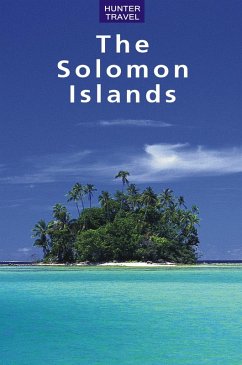Nature is excessive, lovely, and ominous in the Solomons and the Melanesians who live there, often blond or redheaded, are the blackest of all people. Before World War II such names as Guadalcanal, Savo, Munda were rarely heard. Guadalcanal, over 100 miles long by 30 miles wide, is the largest island. Then in descending order there's Malaita, San Cristobal, Choiseul, New Georgia, and Santa Ysabel. All of them are mountainous, covered with rain forest, and laced with rivers. The remaining hundreds of islands range from substantial, to mere dots of coral. Now 68 years after WW II, the Solomons have regained "back of beyond" status, and a modern day escapist might again look at these islands with interest. Honiara, the capital of Guadalcanal, didn't exist when I was there during World War II. They were the British Solomon Islands then, and the hardware of war that littered the land still bore the scent of death. That debris is still there, but now it's rusty, coral-encrusted, and softened with time. When asked about these remnants, most islanders, not even born at the time of that war, will shrug as if to say, "Don't all beaches have rusting landing craft? Aren't there rotting field pieces, aIrcraft and tanks in all jungles?" Today even the most remote islands have usable airstrips that date back to those ancient days. In 1944, courtesy of the USS Acontius, the Solomons were my first South Sea islands. I'd never seen a coconut palm, or a reef with translucent water, a man with a bone in his nose, a thatched village on stilts under palms on a white beach, and I'd never felt the violence of a South Pacific rain squall. In spite of the war I was impressed, hooked and, after several subsequent trips, remain hooked. Still these islands aren't for everyone. There are few activity-filled resorts, it can be hot and humid, the inter-island seas can be rough, there aren't many roads, and there is some malaria. But it's real Melanesia, and for "do it yourself travel" there are plenty of inter island boats, adequate housing, gentle people, and beauty. And, thanks to World War II, you can get nearly everywhere by air. Two hundred fifty thousand Solomon Islanders live on the six main islands and associated clusters that slant across the Coral Sea for 900 miles. Ninety-four percent of them are black Melanesians, but a small fraction are Micronesian, Chinese, a few are European, and curiously some are Polynesian. This guide to the Solomons, written by an author who has seen them all and has been there dozens of times, is loaded with inside information and details on the places to stay and eat, plus what to see and do. It's filled with color photos of the people, the islands and the unforgettably beautiful scenery.
Dieser Download kann aus rechtlichen Gründen nur mit Rechnungsadresse in A, B, BG, CY, CZ, D, DK, EW, E, FIN, F, GR, HR, H, IRL, I, LT, L, LR, M, NL, PL, P, R, S, SLO, SK ausgeliefert werden.


